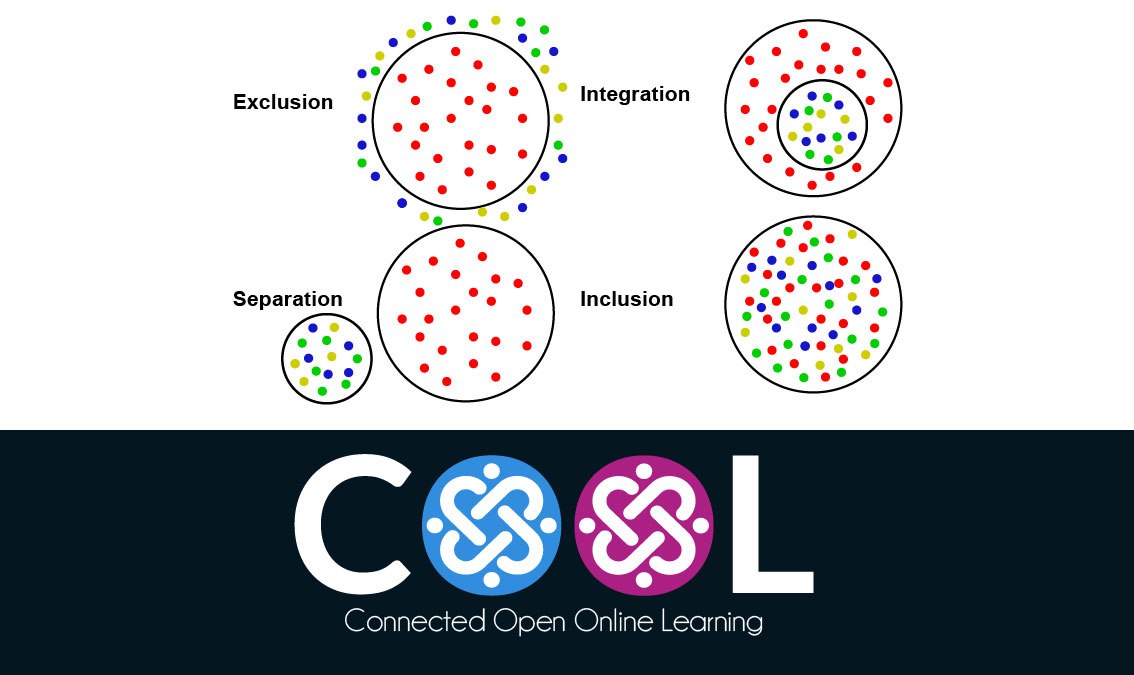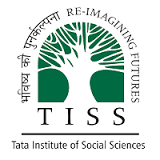Creating an Inclusive School
TISSx-COOL

About This Resource
Please stay safe and use these COOL resources for TE and continue with your professional education during this COVID-19 pandemic lockdown period. You can use the URL www.tissx.tiss.edu or the TISSx android app .
What do the resources offer?
- The Connected Open Online Learning (COOL) resources are meant to enable student teachers and teacher educators to stay connected to their learning and engage with concepts and practices for active and inclusive teaching and learning.
- They are mapped onto the B.Ed Curriculum Framework of NCTE. (See the table below). Please note that these resources consist of some of the key topics put together as a resource and do not cover the entire course comprehensively.
- These resources provide an overview of key topics from each course based on current research and practices. They are not exhaustive. It is essential to follow up with rigorous readings and school-based practices that are integral and necessary for teacher preparation. The resources provide scaffolding for some readings and suggestions for tasks to strengthen practice.
This resource on Creating an Inclusive School is based on available Open Education Resources (OERs) providing a brief overview of contemporary and progressive thinking and perspectives on the education of children with special needs. Drawing on the philosophical grounding for inclusive education the course describes the narratives of ‘disability’ and ‘ability’ so as to track the changing definitions of inclusion within the Indian context. The resources introduce the learners to some of the barriers to inclusion and hence learning and participation of children with special needs are highlighted. The course attempts to provide opportunities for learners to reflect on positive practices, cultures, and policies that can support learners to move towards creating inclusive schools.
We hope you will find these resources useful. We also invite you to enroll in our online modular certificate courses when they are announced on tissx.tiss.edu.
NCTE curriculum and OERs mapping
| S.No. | NCTE B.Ed. Curriculum topics | COOL Resource |
| 1. | The philosophical basis for inclusive education | The underlying philosophy and key principles of inclusive education |
| 2. | Narratives that contribute to the psychological constructs of disability and identity | Models of disability |
| 3. | Children with special needs and inclusion within the educational framework | Policy discourse on the education of Children with special needs and Inclusive Education |
| 4. | Children with special needs and power equations among them | Categories of special needs and learning and assessment methods and frameworks |
| 5. | Barriers to learning and participation’ and positive practices, cultures and policies for creating inclusive schools | Barriers to inclusion and positive practices for inclusion |
Resource Team
Sonia Sawhney
Authoring Team
Meenu Talasila
Shikha Janwadka
Resource Card image Credit
Wikimedia
TISS offers modular courses under the Post-Graduate Certificate for Reflective Teaching with ICT (RTICT), which have been offered by TISS to over 2000 teachers. This program will be useful for teachers and B.Ed students. The courses were developed as a part of the Connected Learning Initiative (clix.tiss.edu) an initiative seeded by the Tata Trusts and led by the Tata Institute of Social Sciences, Mumbai and Massachusetts Institute of Technology, MA, USA; Winner of the King Hamad Prize for Excellence in the Use of ICTs in Education (2018). CLIx OER (https://clixoer.tiss.edu) has several modules, simulations and tools relating to school science, mathematics and English learning.
Another programme offered at TISS, Mumbai, the Post Graduate Certificate in Contemporary Education Perspectives and Research (PGC-CEPR) is aimed at providing continuous professional development to faculty of teacher education institutions, M.Ed students, NGO personnel involved in teacher education, education administrators and policy makers.
TISS-COOL is supported by Tata Institute of Social Sciences, and grants from the Tata Trusts and Pandit Madan Mohan Malaviya National Mission for Teachers and Teaching.

Connected Open Online Learning (COOL OER) by CETE TISS is licensed under CC BY-SA 4.0
